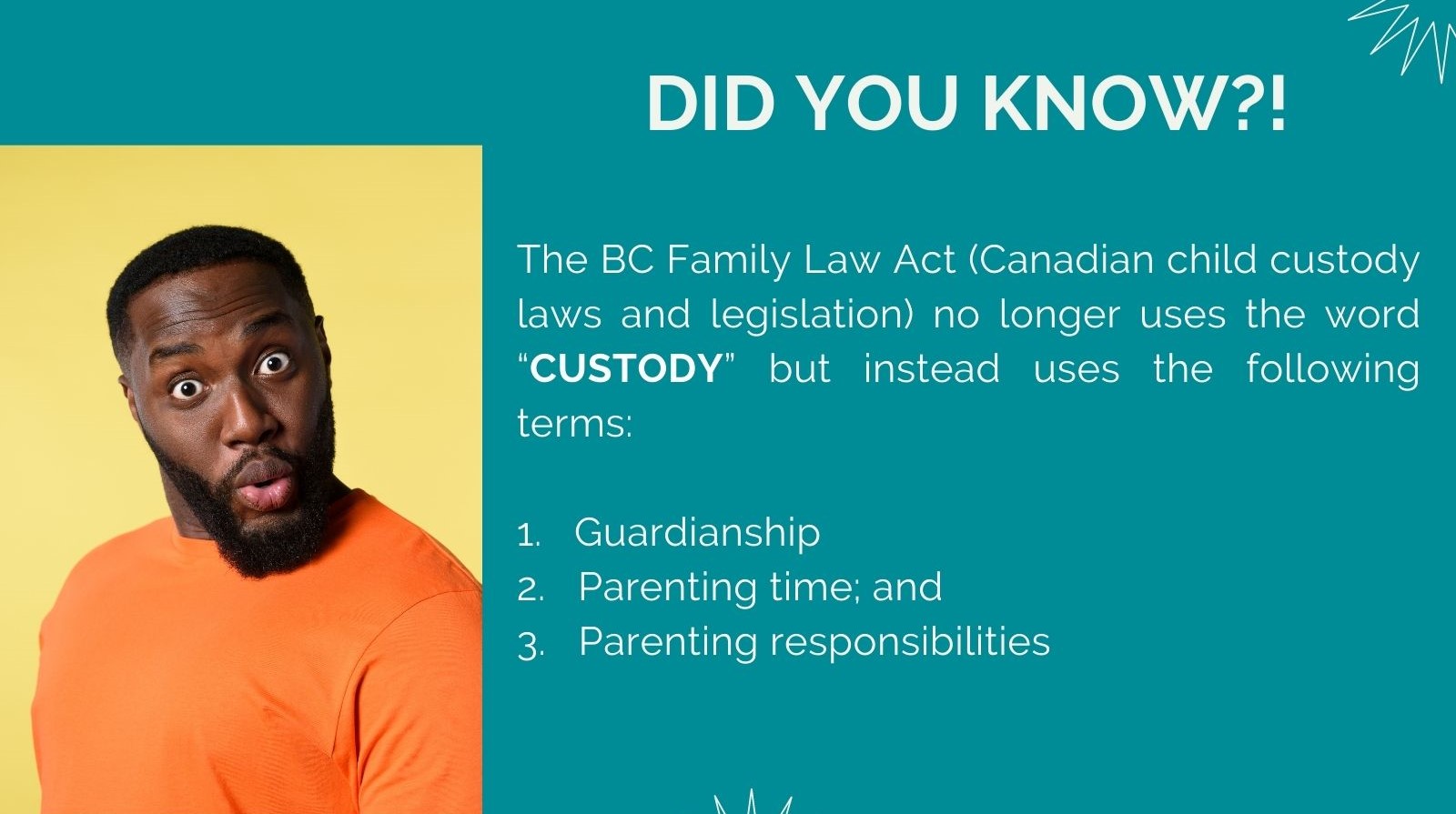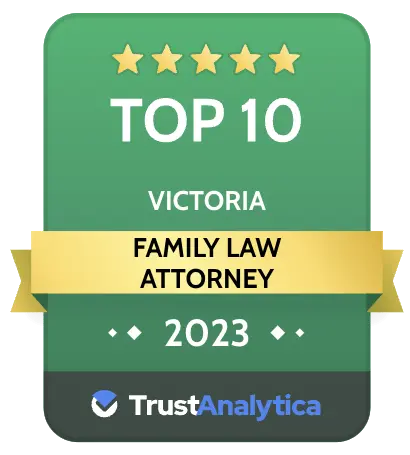Discover more. If your divorce is inevitable, choose the BETTER Path: join our newsletter for supportive, resolution-focused information!

Court Hearing for Child Custody in B.C. -
Your Step by Step Guide
- Home
- Getting Custody
- Court Hearings
Suppose you are heading for a court hearing for child custody in your matter. In that case, family law lawyers will tell you that the child custody laws in B.C. are all about the children's rights and the best interests of your kids.
Whenever we are asked by a parent about getting custody of a child, what they normally mean is that they want primary physical custody or sole physical custody of their child or children.
It is a fundamental and built-in concept in our legal system that a child is entitled to have a meaningful relationship with both of their parents, even if their parents are imperfect.
It is a rare occasion when it is against the best interests of a child to have a relationship with only one of their parents.
Quick Links
Child custody agreement without court

Most of the time, parents can develop a child custody agreement without court. They figure out their child custody schedules, decision-making, guardianship structure, and child support. A lot of the time, they do this using a process we call child custody mediation.
Perhaps child custody mediation has not worked for you and you may have an excellent reason for filing for custody of your child. For example, if your children are being exposed to parental alienation abuse. This happens if the other parent is systematically campaigning to have your kids turned against you. In that case, you might want to consult with a parental alienation lawyer and learn more about the laws on parental alienation.
The point is this: As family law lawyers in B.C., we recommend that our clients only use the court as a last resort. Although co-parenting after divorce will have its challenges, it is good for your kids if you can have a friendly divorce and get on with living your new life and being amicable with your child's other parent. This is not, however, always possible. In such cases, you might have to file for child custody.
If however, you are heading to a court hearing for child custody, the following is what we believe you should know.
6 Steps to a court hearing for child custody in B.C.
Step 1: Consult with a lawyer
Make Sure This is Your Right Move - going to court is a move which should not be taken lightly.
Step 2: Gather your evidence
To proceed to a court hearing for child custody, you must be very clear about the evidence as to why you are asking for a court hearing for child custody. Remember that in British Columbia, family law lawyers will tell you that children are entitled to be parented by both parents, even if one of those parents is profoundly imperfect. This is not a popularity contest between two parents but your child's right to meaningful relationships.
Evidence can come from email, texts, social media posts, and also out of your mouth or that of other people. That is if people have seen or witnessed something that would cause you to be concerned about your child's well-being. Such evidence may also include school records, medical records, communication logs from apps such as Our Family Wizard, and any other documentation that helps demonstrate your ability to care for the child's best interests.
Step 3: File your application
Make sure it is in the correct court and city and ask for the correct relief. Experienced family law lawyers will tell you that it is profoundly important to be crystal clear about what you are asking the court to order. For example, are you asking for a temporary custody order or permanent sole physical custody of your child? You should be able to answer that question if you are taking this step of going to court.
Step 4: Serve the application
The other party must be served with your application for a court hearing for child custody. If it is what is referred to as an "originating application," it will have to be "served" on the other party in person, by someone who is not you. Suppose you already are involved in a high-conflict custody battle. In that case, chances are that the other party already has an address for service. The point is you have to let them know you are filing for a court hearing for child custody and what you are asking for.
Step 5: Attend mediation or other alternative dispute resolution process
Now this may seem counter-intuitive, but bear with us. It is always a great idea to avoid a high-conflict custody battle, as we keep saying. At the same time, after there is a court hearing for child custody set, parties start to realize the financial and emotional cost. The thing about the court is that there are never any guarantees. No matter how strong your case is, there is no such thing as a sure win in the courtroom.
Step 6: Attend court
If your mediation fails, then the courtroom is your next step.
Emergency hearing child custody

There are occasions when the circumstances do not allow you to take the measured, planned and prepared approach of alternative dispute resolution methods such as mediation. There are some cases when an emergency hearing for child custody is required. This can be due to a variety of reasons.
As family law lawyers, we have dealt with an emergency hearing for child custody for various reasons. For example, an emergency hearing for custody may be necessary when a parent has discovered their child has been exposed to physical or sexual abuse. Fairly common is that there is an emergency court hearing for child custody because a parent has substance abuse problems, leading them to not being safe to parent properly. In yet other instances, neglect can be an issue.
Other times, parents withhold their children from the other parent because they are worried that the other parent is a flight risk and will engage in parental kidnapping.
There are occasions when the circumstances do not allow you to take the measured, planned and prepared approach of alternative dispute resolution methods such as mediation. There are some cases when an emergency hearing for child custody is required. This can be due to a variety of reasons.
As family law lawyers, we have dealt with an emergency hearing for child custody for various reasons. For example, an emergency hearing for custody may be necessary when a parent has discovered their child has been exposed to physical or sexual abuse. Fairly common is that there is an emergency court hearing for child custody because a parent has substance abuse problems, leading them to not being safe to parent properly. In yet other instances, neglect can be an issue.
Other times, parents withhold their children from the other parent because they are worried that the other parent is a flight risk and will engage in parental kidnapping.
However, it is important to consult with a family law lawyer if you are considering commencing a court hearing for child custody because it is almost always best to avoid the courtroom when possible.
Mediation for child custody might be a much better route.
It is not uncommon that when parents are newly separated, they may have a lot of fear and anxiety regarding what will happen to their kids. They will want to consult with a family law lawyer to discover the different types of child custody plans they can create for the benefit of their children. Before heading for a high-conflict custody battle, consider all of your options.
Contempt of court child custody
In the context of B.C. Family Law, contempt of court is serious. It means that someone has intentionally violated or disobeyed a court order or has acted in a way that specifically undermines the integrity of our court system. In family law matters, this occurs in many different ways, including when a parent interferes with child custody orders. Interference with child custody can include denying the other parent their court-ordered parenting time, failing to comply with custody order terms, engaging in parental alienation abuse or even making major decisions regarding the child without consulting with the other parent.
Contempt of court child custody matters can (but not always, because all too often we see that people get away with such behaviour) result in significant sanctions such as fines, a change in custody orders, make-up parenting time, and legal costs being awarded against a parent. Another possibility is that parents apply for enforcement of orders, including police enforcement assistance.
As family law lawyers, we have seen our fair share of contempt of the court. In one case we dealt with, a court hearing for child custody happened many times because one of the parents disobeyed, disregarded, and undermined orders of the court whenever they could. They had a relentless campaign of parental alienation against the other parent. Ultimately, in this case, the other parent filed for full custody and succeeded.
Important Related Pages
Motion for contempt child custody
Contempt in a child custody matter is when a court order or legally binding agreement exists relating to your child custody matter, and one party has violated the court-ordered custody arrangement. When a parent disobeys, defies, or undermines an order of the court, such as a child custody order, it can be considered contempt of court.
If you are in a situation where the other parent disobeys your court order, a motion for contempt might be something to consider.
Circumstances warranting such a motion can be when the other parent denies your parenting time, refuses to return your child after parenting time, engages in behaviours that risk your child's safety or exposes them to parental alienation tactics. This is particularly the case if their actions are damaging to your child.
To file such a motion, you, the aggrieved parent, will need to put forward evidence.
If the court finds the other parent in contempt, there are various sanctions, none of them serious enough. The court can impose fines, order make-up parenting time, and in infrequent circumstances, curtail the other parent's parenting time.
Child custody modification

In some situations, you already have a court order or legally binding separation agreement that guides you and the other parent regarding your parenting time and responsibilities. Sometimes, however, despite there being a child custody agreement, circumstances change.
Although a final court order or separation agreement relating to child custody might often be "final," there are times when there is a change in circumstances so significant that it is considered a "material" change in circumstances.
A material change in circumstances can be a substantial change in circumstances relating to either you are the other parent. It can be changed employment, remarriage, substance abuse, neglect of your child, educational or medical needs, and parental misconduct. It can even relate to a parent needing to relocate.
Another material change that comes up repeatedly is when a child grows up and matures and states a preference for being with one parent over the other or to change the current child custody arrangement so that they enjoy more parenting time with one of the parents as opposed to the other.
Child custody hearing tips
If you are heading to a court hearing for child custody, here are some child custody hearing tips that might help:
- Maintain a respectful demeanour, both inside the courtroom and outside of it. How you behave matters even if you are very upset regarding your ex.
- Develop and invite a proposal regarding what you think would be in your child's best interest. You may not be as far apart as you think in terms of agreeing upon what is in your child's best interest.
- Use the B.I.F.F. Method whenever possible: Brief, Informative, Friendly, and Firm. This is a concept developed by Bill Eddy from the high conflict institute. It is a powerful strategy.
- Anticipate objections from the other side. The more ready you are to answer complex questions, the better. Remember, no parent is perfect.
- Follow the timelines by following the Rules of the court. This is the case even if you don't have a lawyer. Demonstrate that you are respectful of the process.
- Be honest. If you are bending the truth, chances are you will get caught. Having your credibility destroyed will not help you or help your child if your child is at risk.
- Make sure you get a background as to what the law is. There are many myths about family law out there; that is, there are a ton of bogus beliefs and well-meaning friends, colleagues and family members can get it wrong. Consulting with a family law lawyer is a great place to start.
- Organize your evidence, like we said.
Summary of court hearing for child custody
So, that was a lot to cover! We get it. Preparing for a hearing for child custody in B.C. is a very big deal. The only thing more important than preparation is ensuring that you make the right decision by moving forward. Suppose an alternative dispute resolution method is available. In that case, we suggest moving forward in that way if it is suitable for your case.









